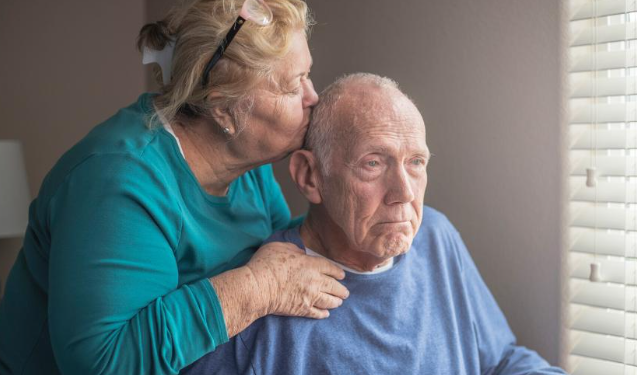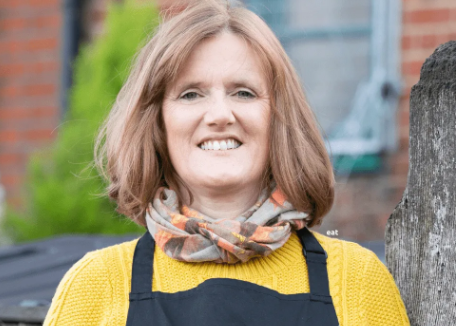Charities have given a mixed reaction to the Labour government's King’s Speech announcements.
While reform of employment and mental health laws and community right to buy have been welcomed, measures on border security and a lack of legislation to tackle child poverty or overhaul social care have been called into question.
A total of 40 pieces of new legislation, including draft bills, were announced in the King’s Speech to build on Labour’s manifesto pledges and focusing on its priority areas around planning and employment law reform and economic growth.
Employment law
Legislation announced includes an employment rights bill, which the government says will be “the biggest upgrade to workers’ rights in a generation”. This will “ban exploitative zero-hours contracts, end fire and rehire, and introduce basic employment rights from day one,” the government says.
We're bringing forward new laws to help:
— UK Prime Minister (@10DowningStreet) July 17, 2024
✔️ Create wealth in every community
✔️ Build houses and infrastructure
✔️ Improve transport and create more jobs
✔️ Secure clean energy
Find out more about what the #KingsSpeech means for you here 👇https://t.co/ywCt8O9pRZ
This has been welcomed by sight loss charity RNIB which said that “blind and partially sighted people face obstacles to employment that those without sight loss do not”.
It says the employment rights legislation “will give more rights to employees, including making flexible working the default from day one and establishing a Fair Work Agency to strengthen the enforcement of workplace rights”.
The government is also proposing a draft quality bill to tighten up equal pay legislation. This “will enshrine the full right to equal pay for disabled people in law”, said the RNIB.
It added: “We stand ready to work with the government as they develop the detail of this new legislation, so that working-age blind and partially sighted people can make the contribution to the UK’s economy that so many have been prevented from doing until now.”
“In particular we want to see much more advice and support on what reasonable adjustments in the workplace – to remove or reduce a disadvantage related to someone’s disability - can be expected by disabled employees.”
Border security
Legislation announced also includes strengthening the UK’s borders including the launch of a Border Security Command to deploy more police and investigators to tackle people smuggling gangs.
But Refugee and Migrant Forum of Essex and London said it was “underwhelmed” by the measures highlighted in the King’s Speech, in particular the lack of mention of “safe routes” for those seeking asylum.
“Without this, more loss of life is inevitable & families will remain separated. Labour need a human-centred approach. People move. They always have. They must accept that,” it said.
Mental health reform
The government has also pledged reform of the Mental Health Act and to put mental health on the same footing as physical health.
Mind said it was “over the moon” that the government had committed to reform the Act.
“This has taken years of campaigning from across the mental health sector and will make a huge difference to people's lives,” said Mind.
“But it’s not the end of our fight. There are some key things that need to be included in any reforms to make sure they reflects the voices of people with mental health problems. And we’ll keep pushing to make sure those voices are heard in the right places.”
“It will ensure mental health is given the same attention and focus as physical health."🔥🔥🔥
— Mind (@MindCharity) July 17, 2024
We're excited by how prominent mental health was in today's #KingsSpeech. This is just the start. We'll keep pushing to make sure the new UK government delivers on these promises💪 pic.twitter.com/ZQ3T0eSBtE
Another charity to welcome the government’s commitment to improving mental health legislation is SANE.
Its chief executive Marjorie Wallace hopes reform of mental health law “can be introduced early in the new parliament”.
“SANE believes that a reformed Mental Health Act has an important contribution to make in ensuring compassionate care that enables patients to be treated with respect and dignity and families and carers to be involved in considerations about care.
“It will be essential, however, that legislation is accompanied by investment in inpatient beds, community services and the NHS workforce so that people whose mental health is deteriorating can be helped before they reach crisis point.”
Children and social care
Laws to raise educational standards and promote children’s wellbeing are also included in the Kings Speech.
Young Minds chief executive Laura Bunt hopes this commitment will "make a difference to young people's lives and their mental health".
However, there is “little to help tackle child poverty” said the charity Child Poverty Action Group.
It is calling on the government to end the two-child limit on benefits which is “the biggest driver of rising poverty and is causing harm to kids”.
“All eyes will now be on government’s first budget, which must commit to scrapping this policy,” said the charity.
“Delaying its abolition will harm many more young lives and undercut the government’s poverty-reduction plans.”
Child poverty taskforce
Instead of a King's Speech legislative announcement, the government has pledged to take action on tackling child poverty through a cross government taskforce, which was launched this week.
This is being led by work and pensions secretary Liz Kendall and education secretary Bridget Phillipson.
In keeping with Labour's pre-election commitment to involve the charity sector more in decision making a raft of charities met with Kendall on Wednesday to "invite their views on how they can shape the strategy".
Save the Children, Action for Children, Barnardo's, End Child Poverty Coalition, Resolution Foundation and UNICEF were among those to meet with the secretary of state.
"We will turn the tide on rising poverty levels, so that every child no matter where they come from has the best start in life," pledged Kendall.
Meanwhile, carers charity Kinship is disappointed the King’s Speech did not include “plans to introduce new comprehensive legislation to reform children’s social care”.
But “this absence doesn’t preclude the government from moving forward at pace with the urgent changes we know kinship families need, including securing greater financial, practical and emotional support”.
The charity added that it welcomed Labour’s commitment to improve support for children’s wellbeing. Strengthening employment rights will help kinship carers, who are currently struggling to work permanently alongside their caring duties, it added.
Devolution
An English Devolution Bill is planned to “move power out of Westminster and back to those who know their areas best” by giving more powers to metro mayors and combined authorities.
Also, community right to buy legislation will be brought in for unused buildings.
Ailbhe McNabola, deputy chief executive of community business think tank Power to Change says she is “pleased to see the new government taking full advantage of its newfound power to affect change, kickstarting its legislative agenda whilst recognising that real, lasting change happens when it is rooted in communities”.
She added: “We’ve been campaigning for a community right to buy as part of our wider work to call for a Community Power Act, and we’re really pleased to see the government including this in the King’s Speech, which sets the ambition and tone for the next four years.
“From pubs and shops to major developments and solar farms, community businesses are locally rooted, community-led and trade for community benefit. They play a key role in economic growth and building sustainable futures.”
Also backing government measures around community right to buy and devolution is Tony Armstrong, chief executive of community organisation membership network Locality.
He said: "The English Devolution Bill is a major opportunity to ensure local people really can take back control.
“A new community right to buy will be a big help to communities trying to save valued local spaces – this is very welcome and is something Locality has long campaigned for.
“More powers for Mayors and Combined Authorities will help us on the journey to community power.”
He hoped that the new legislation ensures “local neighbourhoods and communities have the power to decide where funding goes, what opportunities are created, and how services are run”.
“The government has promised to ‘transfer power out of Westminster, and into our communities’. We look forward to helping make sure this bill delivers that long overdue transformation,” he added.
National Lottery Community Fund chief executive David Knott welcomes "the government's focus on devolving more power to local communities and building an environmentally regenerative future".
Other legislation
A Great British Energy Bill is another piece of legislation announced. This aims to set up a publicly owned clean power company.
The King’s Speech also confirmed legislation to end tax breaks for private schools to fund 6,500 new teachers and improve young people’s skills.
In addition, plans mooted by the previous Prime Minister Rishi Sunak to increase legislation to stop people smoking will be introduced by Labour.
This "will help save countless lives and protect thousands of hearts for generations to come," said British Heart Foundation chief executive Charmaine Griffiths.
King's Fund chief executive Sarah Woolnough believes this "landmark" health legislation "would be one of the most consequential and far-reaching decisions made by this parliament, bringing about long-lasting benefits for the health of the nation".
Meanwhile, rental reforms, including ending 'no fault' evictions, mentioned in the King's Speech have been welcomed by Independent Age chief executive Joanna Elson, who said: "We are very pleased to see that rental reforms look set to be a priority for this parliament."
Leah Davis, head of policy and external affairs at think tank New Philanthropy Capital believes the King's Speech announcements offer "an opportunity for charities and philanthropists to offer their assistance in delivering change across the country".
She added: "We welcome the overall commitment to fairness which is driving this government’s agenda. We also welcome the focus on local growth, because it’s often in local communities where charities and funders can make the biggest difference in removing barriers and creating new opportunities.
"Bills to improve some of the big challenges affecting society - including improving mental health provision, particularly for children and young people, and creating new green jobs to respond to environmental crisis - are much needed.
"We look forward to working with the new government to ensure that these bills are inclusive and effective for everyone."













Recent Stories